Russell Crowe, the Brando of his generation, has been failed by Hollywood
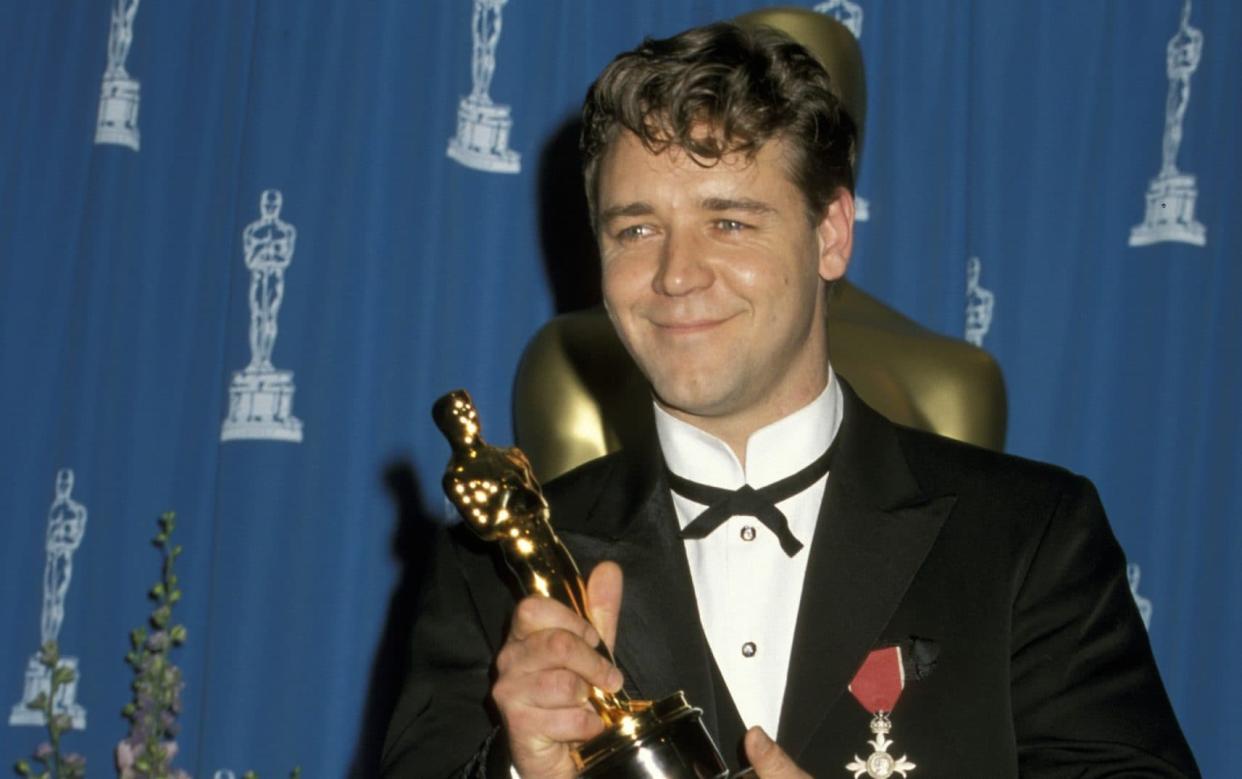
- Oops!Something went wrong.Please try again later.
- Oops!Something went wrong.Please try again later.
- Oops!Something went wrong.Please try again later.
If you watched the trailer for the new Russell Crowe picture entitled The Exorcism, you might be forgiven for feeling a sense of déjà vu. It was only last year that Crowe was starring in another exorcism-themed horror film, entitled The Pope’s Exorcist. That film was largely greeted with critical derision but, like many low-budget horror pictures, was a profitable hit, as well as attracting praise for its star’s typically sturdy and committed performance as Father Amorth, the titular demon-botherer.
The Exorcism, however, does not star Crowe as a man of God, but as the virtual opposite, a troubled actor whose life begins to fall to pieces while he is making a new horror film. In a suitably meta twist, art imitating life, and The Exorcism – which was filmed all the way back in 2019 – had a lengthy and tortuous post-production period, delayed by both Covid and the concern on the part of the production company that the film did not entirely work and needed reshoots. Yet it is only now, thanks to the moderate success of The Pope’s Exorcist, that Crowe – clearly a bankable star when it comes to tales of diabolical possession – can release his latest picture to a doubtless terrified public.
In a wide-ranging interview that the Oscar-winning actor gave to GQ recently, Crowe – always candid with journalists, sometimes to a point of near-discomfort – sought to explain some of the complexities and contradictions in his recent career. The now-60 year old star said “I’ve been unreasonably happy for most of my life. I know that bothers some people, but that’s just not my problem. I pursue creatively and artistically what I want to do, and I have done that for probably about 35 years, you know?”
Many may have expected that, after his iconic role in 2000’s Gladiator, Crowe would have gone on to become the biggest star in the world. But he has demonstrated a wildly variable approach to his career which saw him alternate between parts in modern masterpieces like 2003’s Master and Commander: The Far Side of the World and the excellent, underrated 2007 western 3:10 To Yuma, to roles in random B-movies such as The Pope’s Exorcist and The Exorcism.
Yet he has expressed no regret about being the outstanding feature in films that often do not deserve his unique, forceful talents. As he said, “You’ve gotta find fresh ground. You have to. I can’t keep playing Bud White [from LA Confidential] over and over again. Or Maximus [from Gladiator] over and over again. It has no appeal to me whatsoever. I’ll do whatever’s next.”
Fittingly, the next 12 months offer a piquant demonstration of this eclectic range. First, Crowe’s band Indoor Garden Party will be playing at Glastonbury. Then, he’ll be playing the eponymous anti-hero’s father in the superhero picture Kraven the Hunter, before, in a far more intriguing move, essaying the part of Hermann Göring in the forthcoming historical drama Nuremberg. He is also slated to play the artist Mark Rothko in a new biopic, which would stretch his considerable abilities further. Set against this, if you have seen the actor in such recent films as The Greatest Beer Run Ever or Land of Bad, then you are a true Crowe completist. His last picture, the crime drama Sleeping Dogs, came and went without any particular notice being taken. As usual, he was excellent in it.
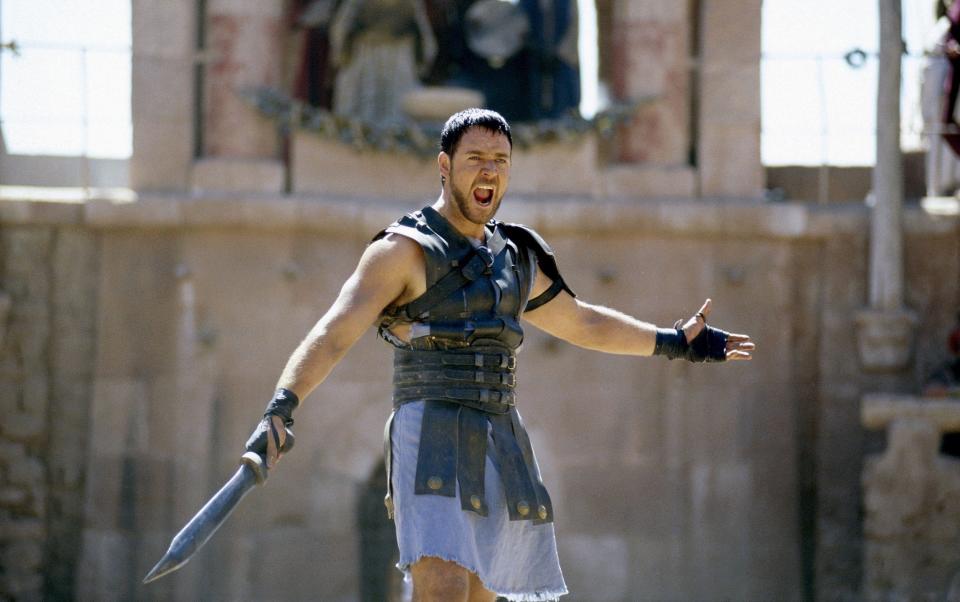
Looking at his diverse CV, it is possible to make two observations. Firstly, even when the material is sub-par, Crowe is never less than a magnetic presence on screen; and secondly, he had the misfortune to find that his most iconic role has dominated his career forever after. (He complained about this perception recently, saying “[a very] unkind journalist will say, ‘So you’ve basically got a one-movie career.’”)
Rewatching Gladiator in preparation for the Paul Mescal-starring sequel later this year, it is fascinating to see how terrifying he is as Maximus; the Terminator made flesh and transplanted to Ancient Rome. Most other actors would have sought to humanise the protagonist, to give him some semblance of doubt and vulnerability. Not Crowe. His general-turned-gladiator is on a single-minded mission for revenge, and he will achieve it, in this life or the next.
At the beginning of his career, Crowe flirted with a musical career under the inspired/bizarre pseudonym ‘Russ Le Roq’. The first song of any note that he released was entitled I Just Wanna Be Like Marlon Brando, and this has proved an uncannily prophetic indication of where his career has gone. Like Brando, Crowe began his career in roles that combined screen-scorching charisma with unexpected vulnerability and fierce intelligence. Yet he also sang “I’m not cut out to be a movie-star toughie, that’s plain to see – it’s the quiet life for me.” If he has now embraced that quiet life, it is not without a lengthy immersion in the role of movie-star toughie, too.
Brando captivated audiences in The Wild One and On the Waterfront, and Crowe swiftly established himself as a formidable presence in the disparate likes of Romper Stomper, the peerless L.A. Confidential and even the Denzel Washington sci-fi thriller Virtuosity, in which Crowe confidently stole the show from the more experienced actor.
Yet by the time Michael Mann cast him in The Insider in the role of Big Tobacco whistleblower Jeffrey Wigand, he could exhibit a different kind of virtuosity. Just as Brando put aside his innate masculinity in the Seventies to underplay the roles of the all-powerful Don Vito Corleone in The Godfather and the anguished Paul in Last Tango in Paris, so Crowe – at a far younger age – was able to take on characters decades older than he was with a coiled intensity that played against his natural charisma.
Ironically, now that he is the right age to take on these roles, he has retreated away from the kind of parts that Brando took on later. It would be wonderful to see Crowe in a contemporary version of The Godfather, but he has not been cast. It may not have helped his cause that, just as Brando torpedoed his career with (usually accurate) claims that he was difficult to work with, so Crowe’s fiery nature came to the fore in a succession of off-screen altercations that were gleefully reported by a far-from-sympathetic media at the peak of his career.
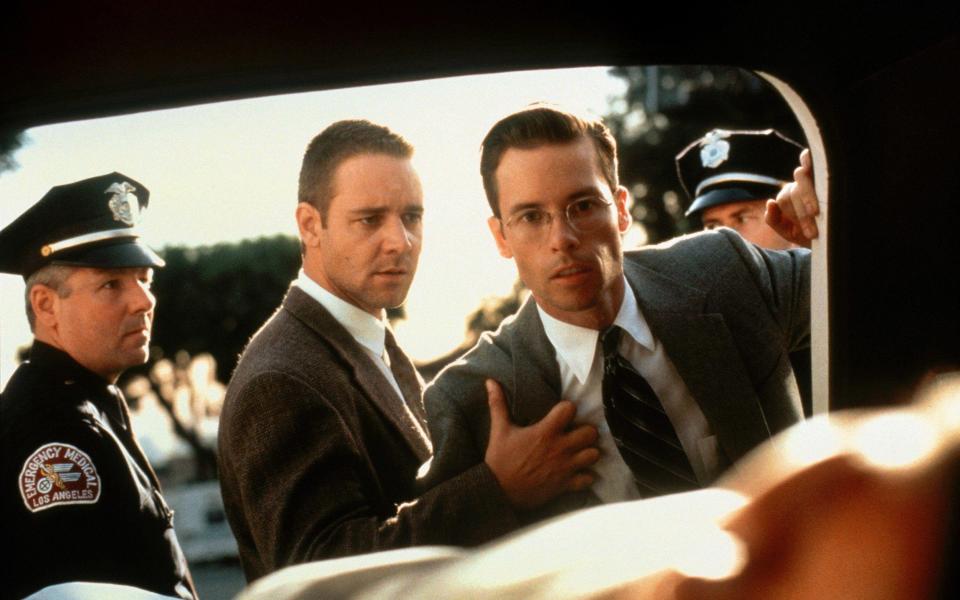
He was widely expected to win a second consecutive Oscar for his performance as the schizophrenic mathematician in Ron Howard’s 2001 biopic A Beautiful Mind. But after he “ferociously argued” – descriptions of how ferocious this was have varied – with Bafta producer Malcolm Gerrie over editing his acceptance speech for his Best Actor award, the Academy chose to acknowledge Denzel Washington in Training Day instead, perhaps in horror at how untamed an actor they had in their midst. And when, in 2005, he threw a phone at a concierge in frustration, he was arrested, handcuffed and had to pay a large sum in compensation, something that he called “possibly the most shameful situation that I’ve ever gotten myself in”.
For the next few years, this dichotomy seemed to define Crowe’s life and career. When he was well cast, as in his Jack Aubrey in Peter Weir’s magnificent Master and Commander: The Far Side of the World or his oddly sympathetic criminal 3:10 To Yuma, he was an electrifying presence. When he clearly felt that the material was beneath him, as in many of his subsequent collaborations with Ridley Scott – the rom-com A Good Year being a particularly egregious example – he coasted along, barely bothering to do much more than show up and deliver the dialogue.
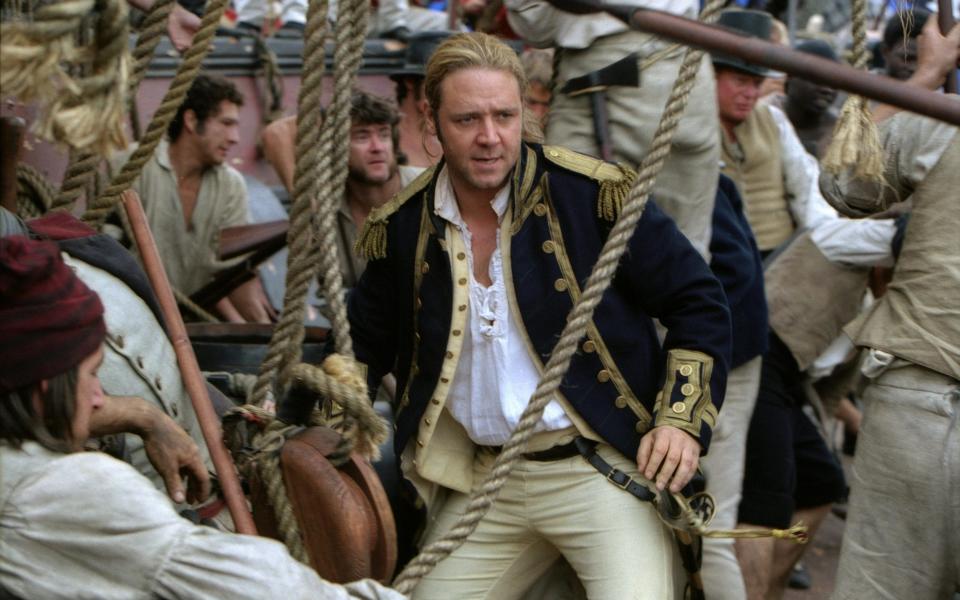
And as he grew older, the roles that he was offered became less interesting. An attempt to recapture the success of Gladiator by reuniting with Scott for another infamously troubled production, 2010’s Robin Hood, was a failure. And Crowe did not help himself by storming off a Radio 4 interview when asked about why his Robin spoke with an Irish accent. (“You’ve got dead ears, mate,” he told interviewer Mark Lawson.)
After Robin Hood, Crowe has not been a major leading man again. He had an unexpected hit as Noah in Darren Aronofsky’s weird, visionary 2014 epic, but otherwise he has mainly been found in a mixture of high-profile cameos, supporting roles and leads in smaller projects. Sometimes, these were brilliant. His appearance opposite Ryan Gosling in Shane Black’s The Nice Guys played on his tough persona and demonstrated a gift for comedy he hasn’t been allowed to display enough.
But the disappointments and missed opportunities outweighed the successes, and despite a 2020 Golden Globe for his uncanny portrayal of the disgraced broadcaster Roger Ailes in the miniseries The Loudest Voice, Crowe is simply not getting the roles that he merits. His highest-profile recent films have been superhero pictures, and although he was a warm, sympathetic Jor-El (another Brando role) in Zack Snyder’s Man of Steel, he was less stretched by his appearance as a Greek-accented Zeus in Taika Waititi’s Thor sequel, and it seems likely that, whether or not Kraven the Hunter is a hit, it will not be a challenging role for him.
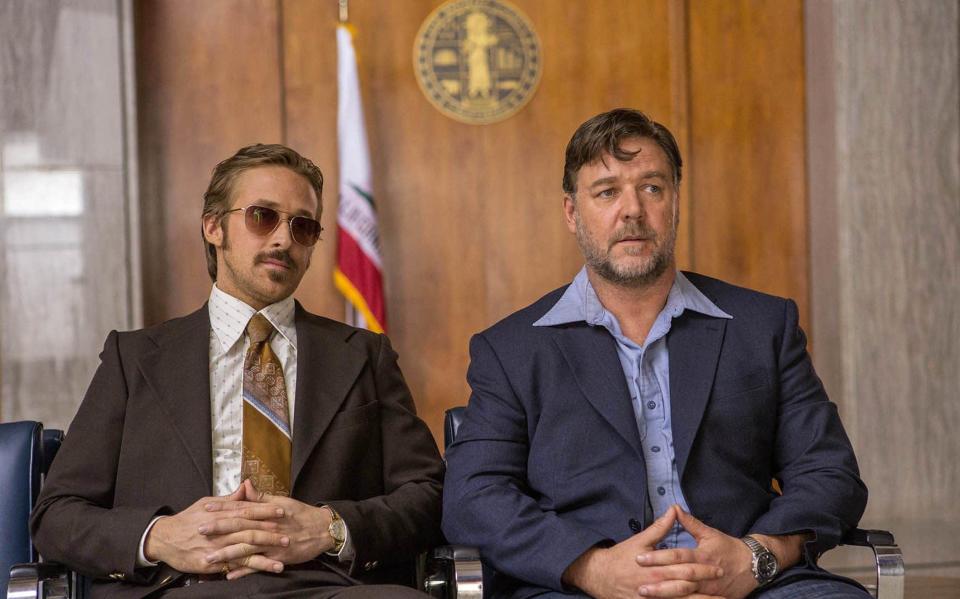
Still, Crowe himself can be seen as complicit within this shift in his career. He is a wealthy man, happy to continue to live in Australia (on a 400 hectare farm, no less) and with no interest in playing the Hollywood game. He speaks longingly about the solitude that it offers him, saying “I have a quiet life. I do. I go to work – I do my thing. When I’m not at work, I’m in the bush, and it’s me, and some cows, and some dogs, and some horses, chickens – and a lot of space.”
Nonetheless, there are some occasional amusements here, too. Ed Sheeran’s manager Stuart Camp once described a surreal occasion in which Sheeran, on tour in Australia, was invited to Crowe’s farm along with the local women’s football team and some other actors, whereupon drink was taken (in, naturally, Crowe’s own pub in the garden) and a refreshed Sheeran ended up sleeping in a field populated by lethal snakes while his terrified management scoured the grounds looking for him. Such incidents are far more interesting than anything Crowe has done on screen in years.
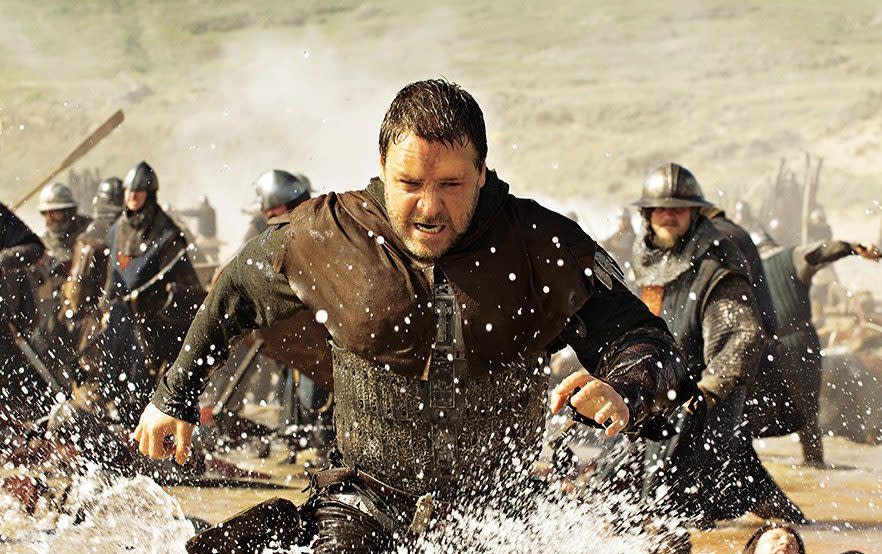
Anyone who can see the range and breadth of his ability can be forgiven for finding it frustrating that the actor is no longer being pushed. There is a solution to this, of course. There are any number of directors who would get truly great work out of the actor, whether it’s Mann and Scott or the younger likes of David Fincher, Christopher Nolan or Jane Campion. All of them could usefully help him subvert his image and bring out the bruised tenderness that he so adroitly displayed in the likes of L.A. Confidential and The Insider.
Hollywood loves a comeback, and as the recent career revival of Brendan Fraser has shown, there is a great deal of affection for a middle-aged actor who is prepared to stretch themselves in new and hitherto unsuspected ways. The Exorcism and Sleeping Dogs and the like are not worthy of Russell Crowe’s remarkable talent, and he has to make a choice. Either he can more or less retire to his sprawling farm and look back at a remarkable career with deserved fondness. Or he can stretch himself once again and produce some genuinely remarkable work on screen. Let’s hope he chooses the latter.
NB. This is an updated version of a piece that first ran in April 2023

